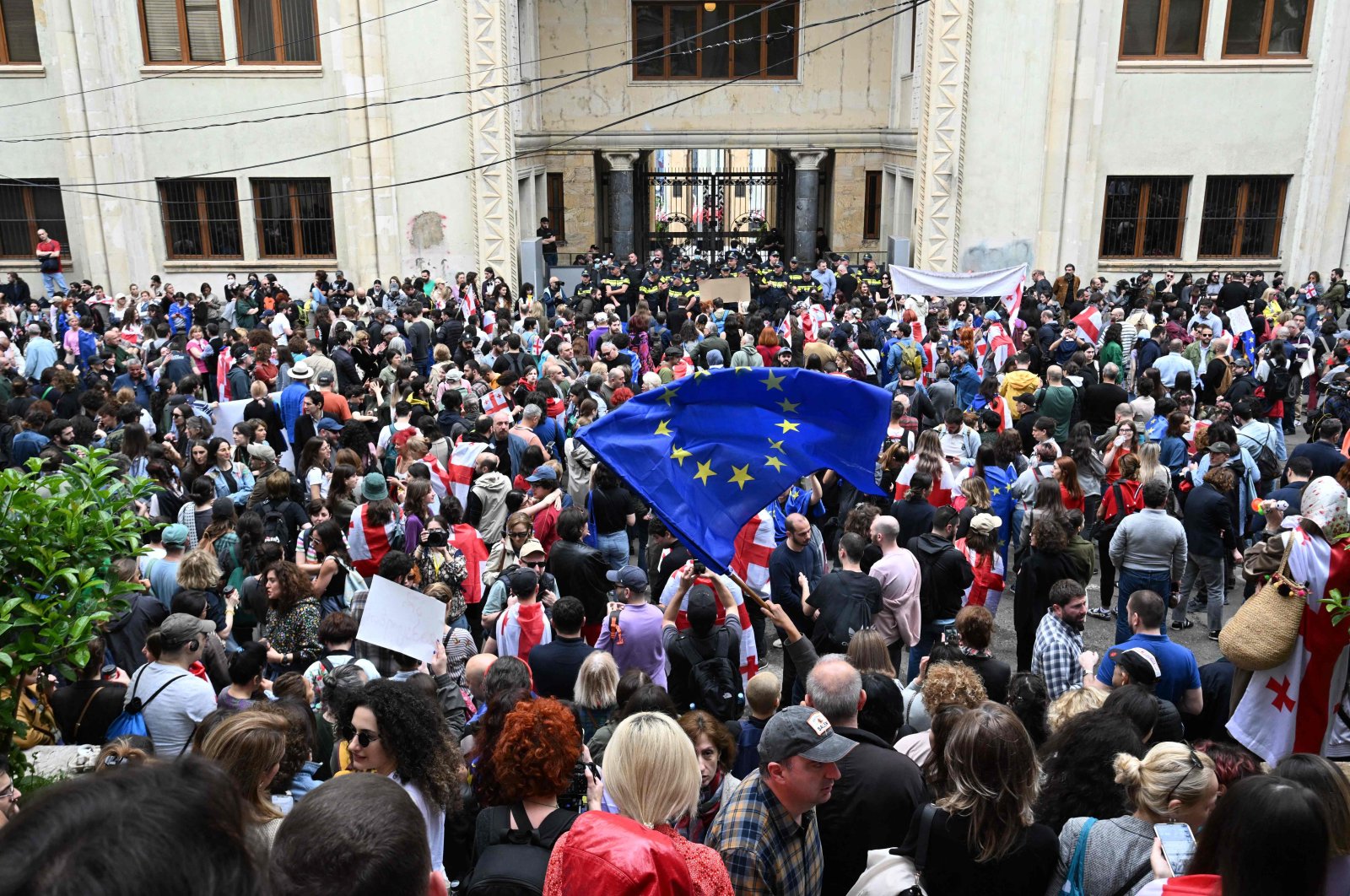
The parliament of Georgia voted to reverse the presidential veto of the foreign agent legislation, which sparked a crisis and weekslong protests in the country.
Tuesday's vote to ignore the objections of Georgian President Salome Zourabichvili, whose powers are mostly ceremonial, sets the stage for the speaker of parliament to sign the bill into law in the coming days.
The dispute about the newly-minted law has come to be seen as a key test of whether Georgia, for three decades among the most pro-Western of the Soviet Union's successor states, would maintain its Western orientation, or pivot instead to Russia.
The bill would require organizations receiving more than 20% of their funding from overseas to register as "agents of foreign influence", while also introducing punitive fines for violations, as well as onerous disclosure requirements.
Opponents of the bill have for more than a month mounted some of the largest protests Georgia has seen since independence from Moscow in 1991 as the Soviet Union crumbled.
The U.S., Britain and the European Union have all criticized the bill, which Georgian opposition groups have dubbed "the Russian law," saying it is modeled on Russian legislation used to target opponents of Vladimir Putin's Kremlin.
Russia is unpopular among many Georgians for its support of the breakaway regions of Abkhazia and South Ossetia, with public opinion broadly supportive of membership in the EU and NATO.
The United States has threatened to sanction Georgian officials who vote for the bill, a major turnaround in U.S. policy toward what had been among the most pro-Western countries to emerge from the Soviet Union.
The Georgian government has accused Western countries of blackmail over their opposition to the bill, and said that it is necessary in order to stop them from dragging Georgia into a war with Russia.
Russia denies any role in backing the bill, which it has defended from Western criticism.
